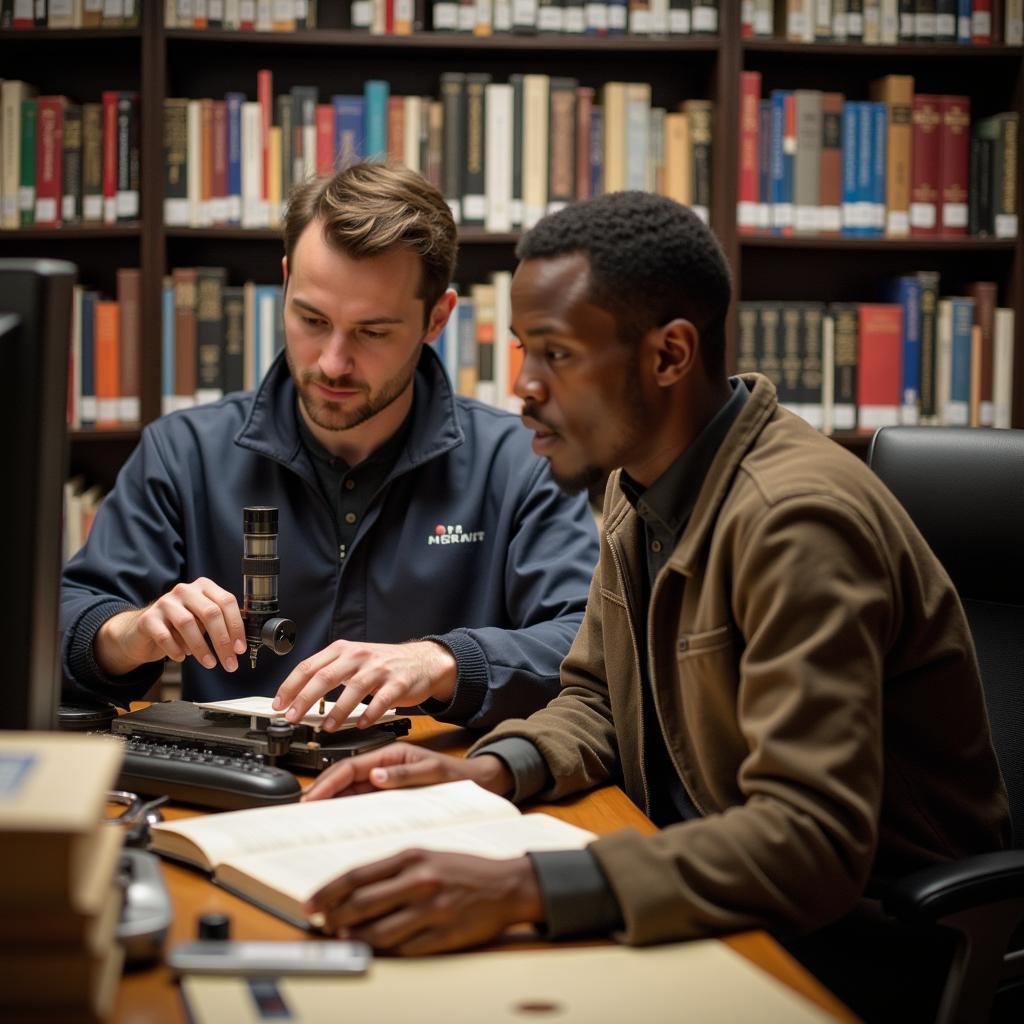Finding local studies might seem like searching for a needle in a haystack, but it doesn’t have to be that way. Whether you’re interested in local history, environmental studies, or community health initiatives, local research offers a wealth of knowledge. This article will guide you on how to unearth these hidden gems and tap into the rich tapestry of local research.
 Local Studies Research in a Library
Local Studies Research in a Library
Why Explore Local Studies?
Local studies offer a unique perspective often missed in broader research. They delve into the specifics of a particular area, offering insights into its unique history, culture, and challenges. These studies can be invaluable for:
- Understanding community needs: Want to know what issues matter most to your community? Local studies provide firsthand accounts and data to guide initiatives.
- Uncovering historical context: From old maps to personal diaries, local research unveils the layers of your community’s past, providing context for the present.
- Informing decision-making: Whether it’s urban planning or public health policy, local studies offer data-driven insights for informed decisions.
Where to Begin Your Search
 Accessing Online Databases for Local Research
Accessing Online Databases for Local Research
Unearthing local studies requires a bit of detective work, but the reward is well worth the effort. Here are some key avenues to explore:
1. Libraries: Your Local Knowledge Hubs
Your local library is more than just books. Librarians are excellent resources who can guide you to:
- Local history sections: Many libraries dedicate sections to local history, housing books, photographs, and even oral histories.
- Archives and special collections: These treasure troves may hold unpublished manuscripts, diaries, maps, and photographs specific to your area.
- Digital databases: Libraries often subscribe to online databases with digitized newspapers, yearbooks, and other local documents.
2. Historical Societies and Museums
Historical societies and museums are dedicated to preserving the past and often house extensive collections related to local research. They may have:
- Archival materials: Photographs, letters, and official documents offer glimpses into the past.
- Oral history projects: Recorded interviews with long-time residents provide invaluable firsthand accounts of local history.
- Exhibits and events: Keep an eye out for exhibits or presentations that might align with your research interests.
2 secondary research methods often prove particularly valuable when exploring historical societies and museums.
3. Universities and Colleges
Local universities and colleges can be valuable resources for finding studies conducted by students and faculty.
- Reach out to relevant departments: Departments like history, sociology, or environmental studies may have faculty conducting research in your area of interest.
- Explore university libraries: University libraries often have extensive collections and may grant community members access.
- Check for online repositories: Some universities have online repositories where they share research findings with the public.
4. Online Resources
The internet has revolutionized how we access information, and local research is no exception.
- Digital archives: Websites like the Digital Public Library of America (DPLA) and state archives offer a wealth of digitized materials.
- Genealogy websites: Websites like Ancestry.com and FamilySearch can unearth local records like census data, obituaries, and property records.
- Local news outlets: Many local newspapers and news websites have online archives that can be searched for past articles related to your research topic.
5. Community Organizations
Don’t overlook the wealth of knowledge within your own community!
- Contact local government agencies: Planning departments, historical commissions, and other agencies often have reports and studies related to their work.
- Reach out to community groups: Historical societies, environmental groups, and other organizations may have conducted or have knowledge of relevant research.
- Talk to long-time residents: Sometimes the best insights come from people who have lived in the community for many years.
Tips for Successful Local Research
- Be specific in your search: The more specific your keywords are, the more targeted your results will be.
- Think outside the box: Don’t limit yourself to traditional sources. You never know where you might find a hidden gem.
- Connect with local experts: Librarians, archivists, and historians are invaluable resources who can guide your search.
- Be patient and persistent: Unearthing local studies takes time and effort, but the rewards are well worth it.
Conclusion
Discovering local studies opens a window into the unique tapestry of your community. By tapping into libraries, historical societies, online resources, and the knowledge of local experts, you can unearth valuable insights and contribute to a deeper understanding of your local area. So, embrace your inner researcher, and embark on a journey of discovery within your own backyard.
FAQs
1. Are local studies peer-reviewed?
Local studies can vary in terms of peer review. While some may be published in academic journals, others might be reports or publications from local organizations.
2. How can I cite a local study?
Citation styles vary, but generally, you’ll want to include the author’s name, the title of the study, the date of publication, and the source (e.g., the name of the organization or archive).
3. What if I can’t find any local studies on my topic?
If you’re having trouble finding existing research, it could be an opportunity to conduct your own! Hope research can be particularly rewarding in such instances.
4. Can I use local studies for academic research?
Yes, local studies can be valuable sources for academic research. Just be sure to critically evaluate the sources and methodologies used.
5. How can I contribute to local research?
Consider volunteering at your local library, historical society, or museum. You can also participate in oral history projects or donate relevant materials to local archives.
Need further assistance?
Contact us at:
Phone: 0904826292
Email: research@gmail.com
Address: No. 31, Alley 142/7, P. Phú Viên, Bồ Đề, Long Biên, Hà Nội, Việt Nam.
Our team is available 24/7 to support you.